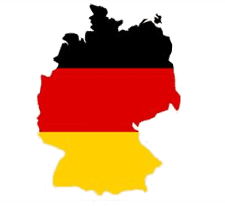Germany Tries to Slide by EU Edict by Doubling Sports Betting Operator Licenses
Last week’s assembly of Germany’s 16 state-level prime ministers in Berlin brought developments regarding the ongoing battle between Germany and the European Union over elements of the country’s Glücksspielstaatsvertrages (State Treaty on Gambling) that continue to defy EU mandate. In partial response to increasing pressure, the 16 state leaders voted to double the number of official operator’s license to be granted, from the 20 called for under the existing version of the State Treaty on Gambling to 40.
 The move appears to be an attempt to slide around a European Union Court of Justice [EUCJ] decision last month in which Germany was ruled to have EU-wide treaties for prosecuting the owner of a sports bar who offered online, kiosk-based betting via a large sports betting shop that is fully licensed within the UK but was not among the firms who arbitrarily received the 20 licenses awarded by German gaming authorities via a since-invalidated review process.
The move appears to be an attempt to slide around a European Union Court of Justice [EUCJ] decision last month in which Germany was ruled to have EU-wide treaties for prosecuting the owner of a sports bar who offered online, kiosk-based betting via a large sports betting shop that is fully licensed within the UK but was not among the firms who arbitrarily received the 20 licenses awarded by German gaming authorities via a since-invalidated review process.
By increasing the license number from 20 to 40, the German officials would likely allow all 35 firms who passed the initial phases of the existing Treaty’s vetting process to receive licenses. The unnamed company involved in the “Sebat Ince” case referenced above is likely one of those 15 companies who failed to receive licenses the first time around.
However, the entire licensing scheme was already ruled unconstitutional in a court case last fall in the German state of Hesse, and absent additional changes in the license-application and vetting process that don’t appear to have been made, the new German proposal doesn’t seem to address the root problems at all.
Nonetheless, the revisions to the Gambling Treaty are on a path to be signed into law as early as June by Germany’s Prime Minister, Angela Merkel, and the country’s Minister of the Interior, Thomas de Maizière.
The reason for the quizzical move, of course, is financial. The country wants to force all would-be operators to obtain a license in Germany, and the heads of the country’s state-run lottery operations, who stridently backed this move, still want to find a way to limit the perceived competition as much as possible, whether that continues to run afoul of EU mandates or not.
The two leading managers of the German lottery and pools association LOTTO Hamburg, which operates Deutsche Lotto and Totoblock [DLTB], issued a joint statement welcoming the proposed agreement.
“The envisaged granting of 40 sports betting licenses and the provisional acceptance of the 35 companies in the concession procedure successfully reached the second stage, the pacification of the situation is in sports betting,” said LOTTO Hamburg CEO Michael Heinrich.
“It is true that the German states hold firm on the model of market concession. This is a clear rejection of further liberalization within the sports betting market and therefore a clear commitment to far-reaching and effective player protection,”added LOTTO Hamburg managing director Torsten Meinberg. “We now expect, of the [German states], enforcement in the gaming market to continue to bring improve [market] performance and supervision,” Meinberg added.
Or not. Even if the new provisions to Germany’s State Treaty on Gambling are indeed signed into law this summer, the gaping legal loopholes through which the EUCJ and Hessian decisions went against the country still exist unchecked. In other words, even if another 15 or 20 prominent, EU-licensed firms receive German operating licenses, there’s little disincentive for other EU-licensed operators not to continue marketing their services in Germany anyway. The proposed changes leave the same old illegal chalk line in place, but just change the color of the chalk.
In some ways, it’s a challenge to the notoriously slow-to-react EU. What’s likely to occur here is a rinse-and-repeat cycle. What happened in the Ince case is likely to happen elsewhere in Germany again, triggering a whole new series of prosecutions by German officials based on gambling of unlicensed sites. And some time after that, the EU will declare Germany still to be in violation, meaning no one but the lawyers makes any money. Sounds about right, doesn’t it?





